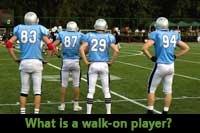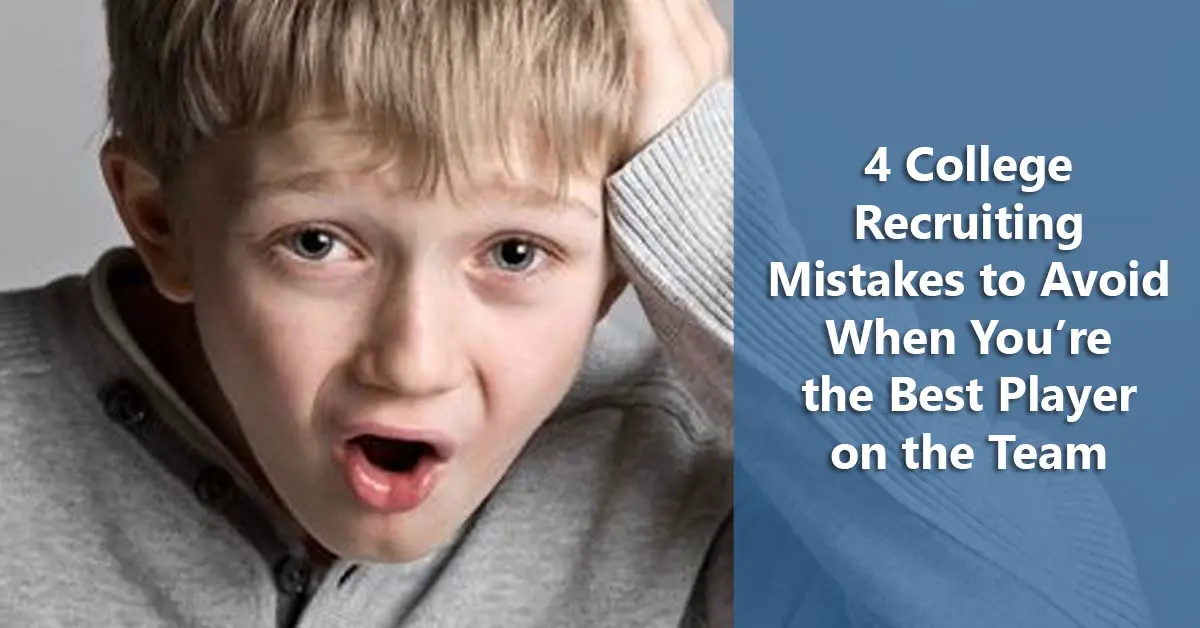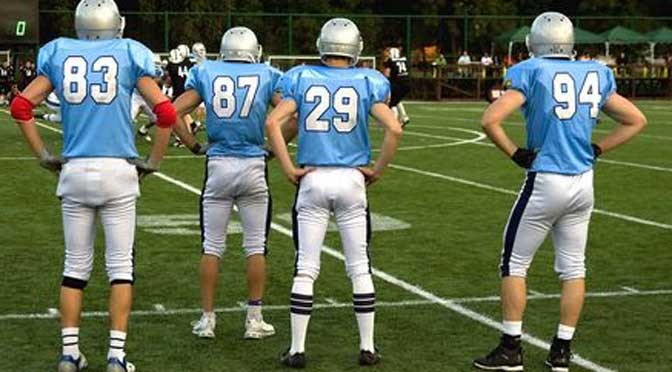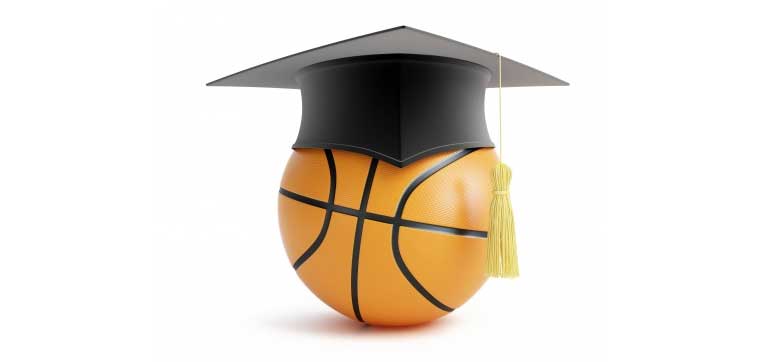 So far I’ve covered college recruiting mistakes concerning signs that you don’t understand the college athletic recruiting process and mistakes players and families make about their ability and what it means. Today, I’m going to cover mistakes related to finances when looking for athletic scholarships. If it’s really about using sports to help pay for college, you need to avoid the following college recruiting mistakes:
So far I’ve covered college recruiting mistakes concerning signs that you don’t understand the college athletic recruiting process and mistakes players and families make about their ability and what it means. Today, I’m going to cover mistakes related to finances when looking for athletic scholarships. If it’s really about using sports to help pay for college, you need to avoid the following college recruiting mistakes:
Softball
4 College Recruiting Mistakes to Avoid When You’re the Best Player on Your Team
 Many high school players and their families believe that being the best player on their teams is their ticket to playing at the college level. The truth is that star high school athletes are likely to make some assumptions about their ability that will undermine their chances of playing in college. Here are four college recruiting mistakes based on assumptions of talent that you must avoid.
Many high school players and their families believe that being the best player on their teams is their ticket to playing at the college level. The truth is that star high school athletes are likely to make some assumptions about their ability that will undermine their chances of playing in college. Here are four college recruiting mistakes based on assumptions of talent that you must avoid.
5 Warning Signs that You Don’t Understand the College Recruiting Process
 If you spend any time on the internet or reading books on college athletic recruiting, you’ll see lists of common mistakes made by families during the recruiting process. The interesting thing is that there isn’t a lot of variation in the mistakes mentioned, it appears that people are making the same college recruiting mistakes over and over. You have to wonder since there are warnings about them everywhere.
If you spend any time on the internet or reading books on college athletic recruiting, you’ll see lists of common mistakes made by families during the recruiting process. The interesting thing is that there isn’t a lot of variation in the mistakes mentioned, it appears that people are making the same college recruiting mistakes over and over. You have to wonder since there are warnings about them everywhere.
8 Ways Showcase Camps Can Be a Waste of Money
 Remember when camps were something you did for a week or two in the summer or maybe over a weekend with a scouting troop? High schoolers didn’t go to camps, they worked at them to save up money for college. Not anymore. At least not for high school athletes interested in playing at the college level.
Remember when camps were something you did for a week or two in the summer or maybe over a weekend with a scouting troop? High schoolers didn’t go to camps, they worked at them to save up money for college. Not anymore. At least not for high school athletes interested in playing at the college level.
Showcase camps are a convenient, although increasingly expensive, way to get recruited. Given that most college athletes don’t receive scholarships, it can be hard to see the ROI on attending showcase camps. It’s not that showcase camps (or prospect camps) are automatically a waste of money. But they’re certain to be if you make the following mistakes.
What is a walk-on player in college sports?
 College athletes without a scholarship that play on a team that offers scholarships are generally referred to as “walk-ons.” Over time, the term has evolved such that now some people recognize three types of walk-ons. There are preferred walk-ons, recruited walk-ons, and just plain walk-ons. If you’re going to be a walk-on, “preferred” is definitely the way to go.
College athletes without a scholarship that play on a team that offers scholarships are generally referred to as “walk-ons.” Over time, the term has evolved such that now some people recognize three types of walk-ons. There are preferred walk-ons, recruited walk-ons, and just plain walk-ons. If you’re going to be a walk-on, “preferred” is definitely the way to go.
Is Stacking Athletic and Academic Scholarships Allowed?
 The first thing you need to know is that athletic and academic scholarships can’t be stacked at D3 schools because they do not offer any athletic scholarships. Until recently, it was theoretically possible to do so at D1 and D2 schools but only if athletes met certain academic requirements. Otherwise, it was assumed that that athletes were just receiving academic scholarships, or institutional need-based aid, simply because they were athletes. What happened in cases where the athletes didn’t meet the academic requirements, the award money was counted against the total number of scholarships allowed for the team. It was complicated.
The first thing you need to know is that athletic and academic scholarships can’t be stacked at D3 schools because they do not offer any athletic scholarships. Until recently, it was theoretically possible to do so at D1 and D2 schools but only if athletes met certain academic requirements. Otherwise, it was assumed that that athletes were just receiving academic scholarships, or institutional need-based aid, simply because they were athletes. What happened in cases where the athletes didn’t meet the academic requirements, the award money was counted against the total number of scholarships allowed for the team. It was complicated.
3 Types of Players that Don’t get Recruited by Colleges
 There are a lot of athletes and their families that are expecting to play their sport in college. And far too many of them are actually counting on an athletic scholarship as part of their plan to pay for college. Yet, the truth is that most of these players won’t be recruited to play in college, much less get a scholarship because they make common recruiting mistakes. If you’re one of the following types of players, chances are you won’t be playing in college.
There are a lot of athletes and their families that are expecting to play their sport in college. And far too many of them are actually counting on an athletic scholarship as part of their plan to pay for college. Yet, the truth is that most of these players won’t be recruited to play in college, much less get a scholarship because they make common recruiting mistakes. If you’re one of the following types of players, chances are you won’t be playing in college.
Why My Spreadsheets Don’t Include the Coaches’ Email Addresses
 My College Athletic Spreadsheets do not include any coaches’ information. No email addresses for baseball coaches or phone numbers for softball coaches. I occasionally get requests to include the coaches’ email addresses but I have no intention of doing so. Why? Because athletes serious about getting recruited to play in college aren’t going to spam every college coach in their sport.
My College Athletic Spreadsheets do not include any coaches’ information. No email addresses for baseball coaches or phone numbers for softball coaches. I occasionally get requests to include the coaches’ email addresses but I have no intention of doing so. Why? Because athletes serious about getting recruited to play in college aren’t going to spam every college coach in their sport.
Should you tell coaches about an injury during the recruiting process?
 Just asking this question suggests that it’s possible to hide the injury from the college coaches. I suppose it’s possible to hide an injury during the recruiting process if it occurs off-season and the player isn’t actually on crutches or doesn’t have an arm in a sling. But how many sports today actually have an off-season? Even those players being recruited in sports that do have a limited season such as football are likely to be playing other sports. Don’t you think the recruiting coach might wonder why the player is sitting out his secondary sport?
Just asking this question suggests that it’s possible to hide the injury from the college coaches. I suppose it’s possible to hide an injury during the recruiting process if it occurs off-season and the player isn’t actually on crutches or doesn’t have an arm in a sling. But how many sports today actually have an off-season? Even those players being recruited in sports that do have a limited season such as football are likely to be playing other sports. Don’t you think the recruiting coach might wonder why the player is sitting out his secondary sport?









